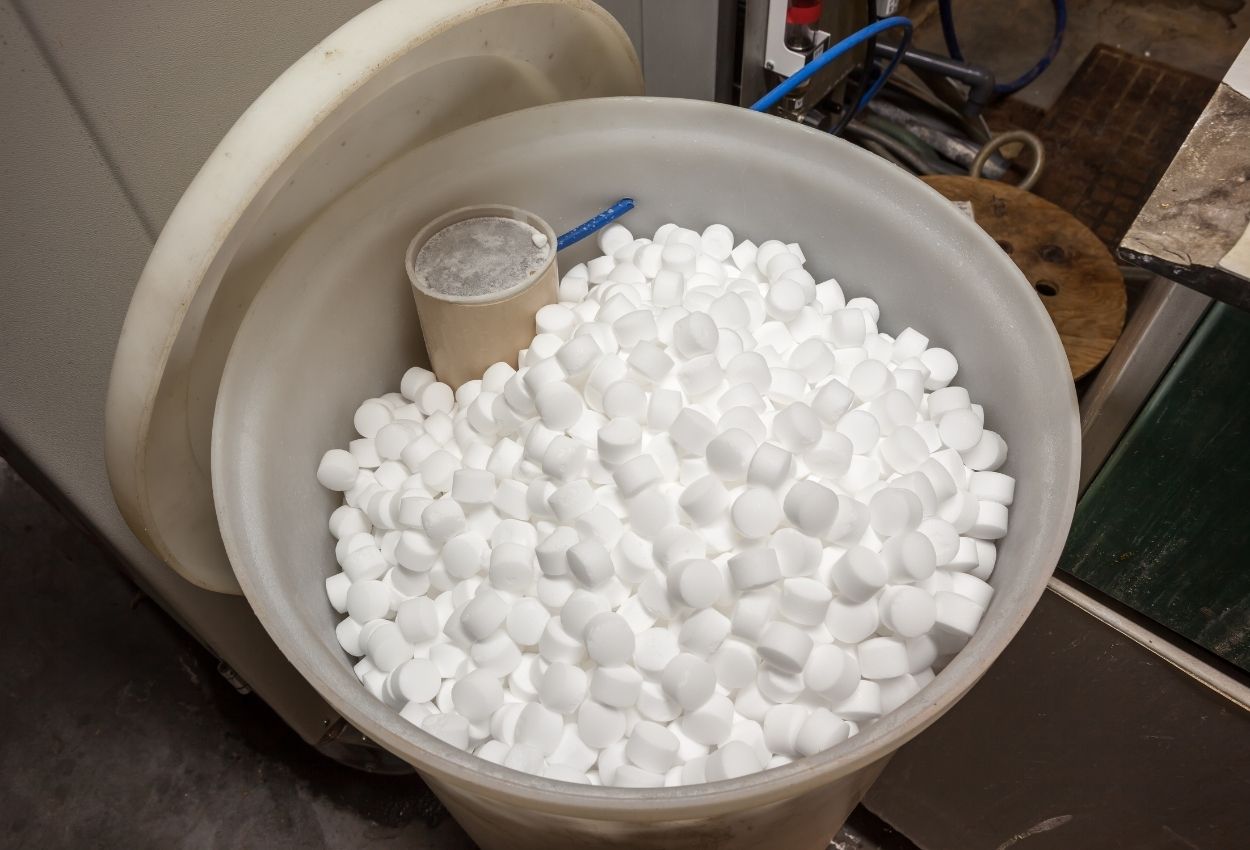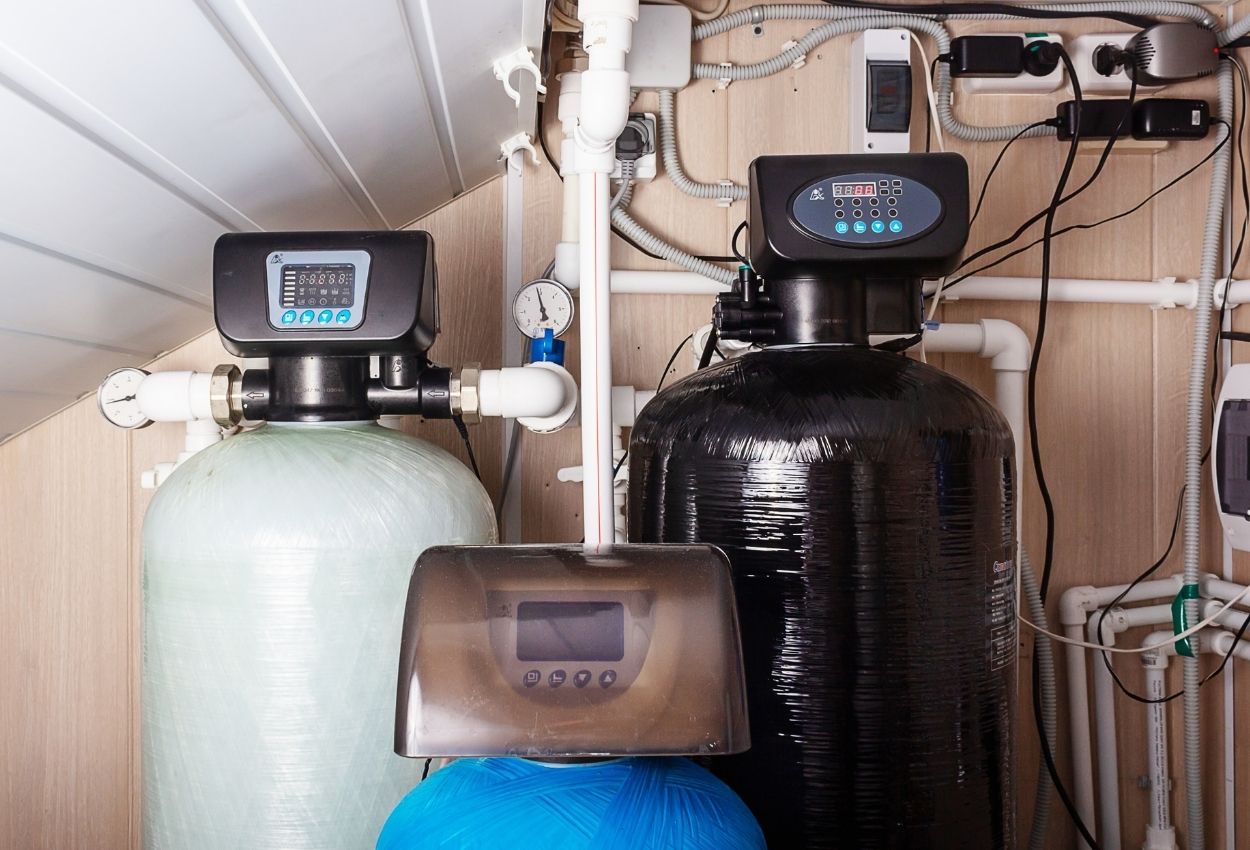There are various kinds of water softeners available on the market, such as salt-free water softeners and salt-based water softeners. Each has its strong points and disadvantages. Deciding which one is right for you depends mainly on what you intend to use the water for and the existing characteristics of the water from your local source. Suppose it’s a priority of yours to produce water for your garden. In that case, the best water softener for you will be an ion exchange softener that uses potassium in place of sodium.
What Are the Types of Water Softeners?
Salt-based Ion Exchange

Ion exchange water softeners are the most common choice for a household. The hard water passes through a tank filled with negatively charged particles, or sodium ions, which attract the positively charged particles, such as calcium, iron, and magnesium. By catching these minerals, the remaining ‘softened’ water exits the system and is available for human consumption or use in the home.
The downside to this unit is that the softened water contains some sodium. While the amount is negligible for most humans (unless, perhaps, you are on a severely restricted sodium intake diet), it can be harmful to plants, especially if it’s allowed to build up in the soil over time without proper flushing through. It dehydrates your plants and flowers and causes soil degradation in the long term. So, if you don’t live in an area with heavy and frequent rainfall to flush the salt out, it’s best to avoid using this type of softened water in your garden.
Potassium-based Ion Exchange
This kind of water softener works in a very similar way to the salt-based softener, except it utilizes potassium chloride in place of sodium. Many people prefer this option because, unlike with salt, our modern-day diets mean that we often don’t get enough potassium—and it’s an essential mineral for healthy human functioning.
Potassium-based softeners are also more environmentally friendly, as plants use potassium to move nutrients, carbohydrates, and water through their tissues. It plays an essential role in plant development. And, because the plants absorb the potassium-rich wastewater, it doesn’t run off and pollute the surrounding environment as sodium water does. For these reasons, potassium-based ion exchange water softeners are a favorite among the gardening crowd.
Single-cylinder
Suitable for homes which doesn’t use much water, a single-cylinder system goes through its regeneration cycle at night, so you can not rely on soft water to be available 24/7. These systems are cheaper than the twin-cylinder versions and less efficient in production and salt use.
Twin-cylinder
More adept at treating water in larger quantities, a twin-cylinder system is perfect for larger families or households that want more freedom with their water use. While one tank is in regeneration, the other can still be working, meaning it can provide constant around-the-clock soft water and be most efficient with salt use.
Decision Time
The best type of water softener for your garden is the potassium-based ion exchange water softener, as potassium is an essential element for a plant’s healthy growth, compared to sodium which, over time, can have a detrimental effect on plant life.

